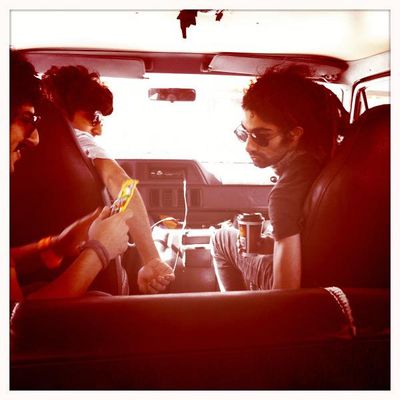
In the aftermath of the shooting by Ali Akbar Mohammadi Rafie that killed Soroush and Arash Farazmand, two members of indie-rock band the Yellow Dogs, along with a third fellow musician, Williamsburg’s Iranian arts community is trying to sort through what happened and why. The Yellow Dogs were a young, hip, and upcoming Iranian group, known for appearing in a popular documentary and then fleeing oppression by their native country’s stifling police for a life of freedom and success in New York City. But according to their fellow musicians, adapting to life in Williamsburg is not necessarily that simple or inspirational.
“Some Iranians who come to New York have these high hopes and dreams of what it’s like to live here,” says Melody Safavi, singer of Abjeez, an Iranian band with members living in Spain, Sweden, and New York. “They expect things that aren’t really realistic. When they come here, they become disappointed. Some of them get depressed, anxious, and isolated. I think that’s what happened to [Rafie].”
Since the revolution in 1979, the Iranian government has officially banned rock music, calling it satanic and offensive to Islam. “When you leave the house, you have to put on the face of someone who’s conforming to certain standards,” says Mani Nilchiani, a friend of the Yellow Dogs who lives in East Williamsburg. “When you go home and hang out with your friends inside, you can be yourself, play your own music, wear and drink whatever you want. But when you go outside, into the public space, there’s this kind of duality we all grow up with. It’s ingrained within our psyche. It’s something I felt completely liberated from when I came here … when I look at the things that I do here, the life that I’ve rebuilt from scratch, sometimes I feel strange because it’s a really different environment. But you adapt to it.”
The Yellow Dogs seemed to have taken to Williamsburg life successfully: “They just wanted to be a band,” says Salmak Khaledi, who plays trombone in the Iranian band 127. “And they were a band — they were the coolest kids in Brooklyn. They were riding their skateboards, drinking and smoking, and going to parties. They played shows and fucked a bunch of Williamsburg girls and were having a fantastic time.”
Rafie may have found the going harder. If the Yellow Dogs were Iranian rock’s golden boys, he was more like its redheaded stepchild. He came to New York with the Free Keys, another Iranian group in the same scene, but was thrown out last year. “It became clear very quickly that he was not a natural fit within our group of friends,” the surviving members of the Yellow Dogs said this week, “and his personal views conflicted with our approach to our art and to the world.” After leaving Free Keys, Rafie moved to Queens. “I think that anyone who comes to Williamsburg or Bushwick … it’s not easy to live here and be an artist,” says Robert Perlick, a sound engineer living in Bushwick who knew the Yellow Dogs. “The prices are so high, rent is ridiculous, and there’s so much competition.”
Raya Homayouni, who knew Rafie for over seven years, believes he succumbed to disappointment over his stunted music career, especially after his relationship with the Yellow Dogs and the Free Keys grew tense. She also believes that he suffered from a severe, untreated mental illness. “Three years ago, I would have sworn there isn’t a violent cell in his body,” she says. “He was very shy; when we were talking, I would usually ask him to speak up.” Homayouni recalls a chilling moment at a recent Yellow Dogs show: “I saw him standing outside, watching the performance from a window,” she says. “I asked him, ‘Why aren’t you coming in?’ He looked at me with this sad look and said, ‘No, I’m just going to watch them from here.’ He loved them, and was crushed in a way.”





























